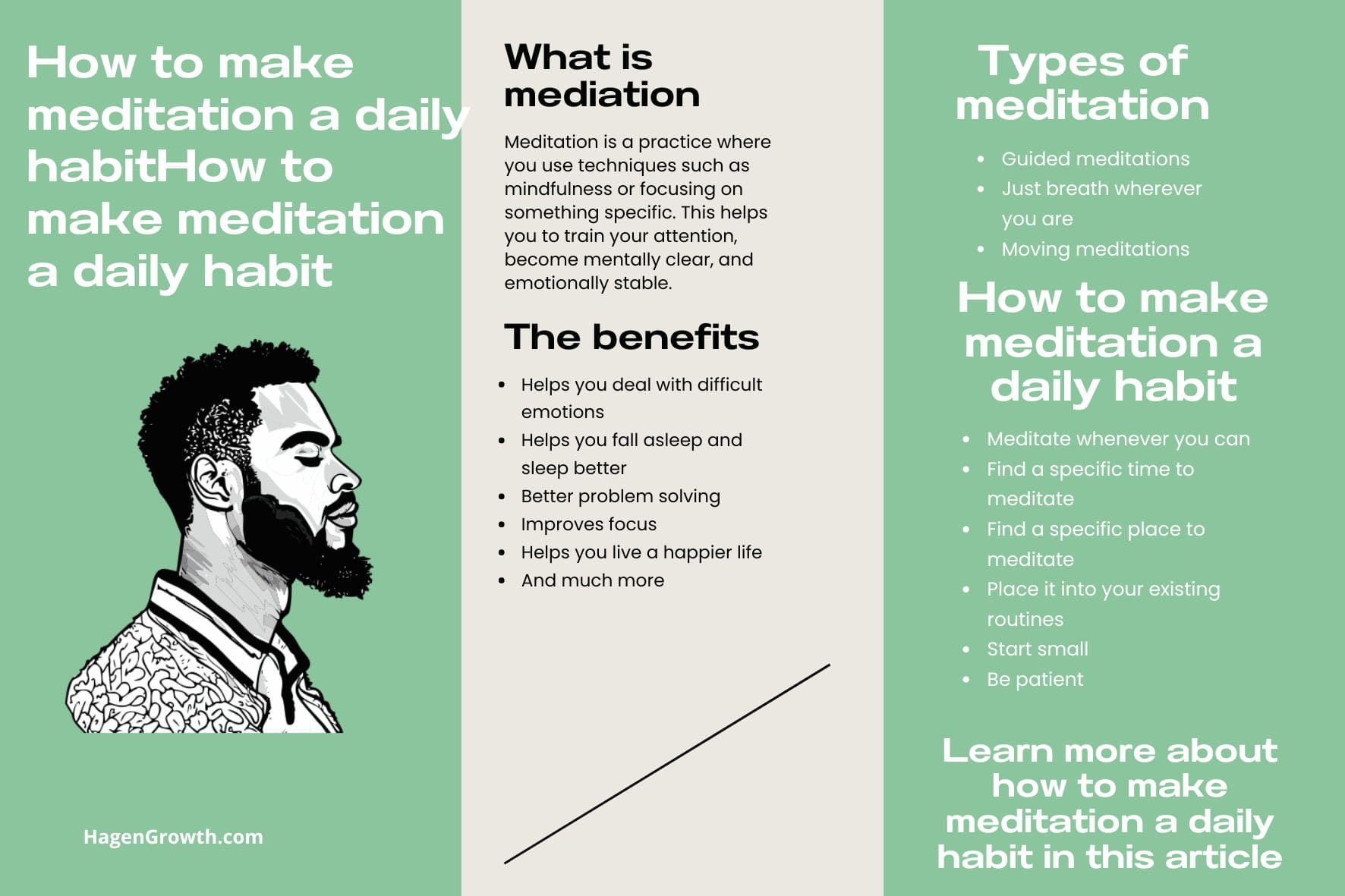
If you believe that it’s not effective, that doesn’t signify there’s no possibility.
For the last four years, I have embarked on a quest to enhance my mental and physical wellness. The path can be convoluted at times, yet I’ve achieved considerable advancements over these recent years. I’ve approached this journey through various methods, ranging from cognitive-behavioral therapy to meditation, yoga, and physical exercise.
Sometimes, it requires significant effort to prioritize your mental and physical well-being. I primarily delve into meditation for its psychological advantages, but it also offers numerous physical health benefits that are scientifically validated as effective interventions. When you’re not feeling your best, initiating the process can be challenging. Regardless of your reasons for exploring meditation, you may encounter some initial discomfort as you begin. Not everyone can effortlessly settle into a tranquil space with a straight posture and seamlessly engage in meaningful meditation.
Meditation is profoundly individualized. Each person has their unique style and mindset. There isn’t a universal meditation method that suits everyone. If you find it difficult to meditate, it’s crucial not to immediately hold yourself accountable for that struggle.
Before you can meditate, you must embrace the principles of self-acceptance and mindfulness.
“When you wish to overcome the anxiety of life, be present in the moment, breathe deeply.”
― Amit Ray
When I began to practice yoga and dabble in meditation, the messages simply didn’t resonate with me. They lacked authenticity and felt insincere. All the talks about “forgiving yourself, accepting yourself, and loving yourself” initially seemed like idealistic nonsense.
I believe part of that sentiment may stem from my upbringing. Growing up in a small town in suburban America, being different felt like a transgression. If you stood out, your family and neighbors whispered about you. I often feel that my tiny town, with fewer than 2,000 residents, is like stepping back in time by 50 years. Unfortunately, that also indicates that many individuals there are not particularly progressive.
Given that background, even yoga and meditation were perceived as oddities, subjects to be judged. I think that’s part of why I faced such difficulties in starting — I feared being judged for being unique.
Regardless of your motivations, if you’re struggling to begin, you might want to engage in some self-reflection and examine what might be causing those obstacles. There could be subconscious factors that make it difficult to accept these positive affirmations, perhaps stemming from your upbringing as it did for me.
It requires trial and error to discover which meditation techniques resonate most with you.
Another aspect that has significantly aided me in consistently practicing meditation and being sincerely mindful is recognizing that not every meditation technique suits me. If certain methods aren’t resonating, that’s entirely acceptable. We each possess unique qualities, varying learning styles and personal preferences. There’s much beauty in that individuality, but it also means that some practices will appeal to you while others won’t.
If you wish to delve into meditation but find it challenging, explore various techniques and methodologies. Guided meditations can be particularly beneficial. In these sessions, an instructor will guide you through the process of initiating your meditation, enhancing your breath, and calming your thoughts. These gentle prompts can be extremely useful if your mind begins to wander. Furthermore, learning from compassionate meditation teachers who encourage you to return to mental stillness after recognizing your thoughts can foster a gentler approach towards yourself when distractions arise.
It’s crucial to investigate diverse meditation techniques.
· Guided meditations
· Sound healing meditations
· Visualization practices
· Body scans — concentrating on a different body part with each breath
· Listening to your surroundings without judgment
· Counting the seconds of your inhalations and exhalations
· Alternate nostril breathing
· Meditating accompanied by music
· Breathing in synchronization with meditation music
There are myriad approaches and methods to meditation. If you’ve experimented with a few and none truly caught your interest, continue trying new ones. You might uncover something special. Personally, counting my breaths significantly aids me; it gives my mind a task as I attempt to still my thoughts. While my mind remains technically active, it helps me relax and focus on being present in the moment.
Always keep in mind that meditation is a skill that grows with practice.
“Emotions come and go like clouds in a blustery sky. Conscious breathing serves as my anchor.”
― Thich Nhat Hang
When you find it difficult to meditate, consider